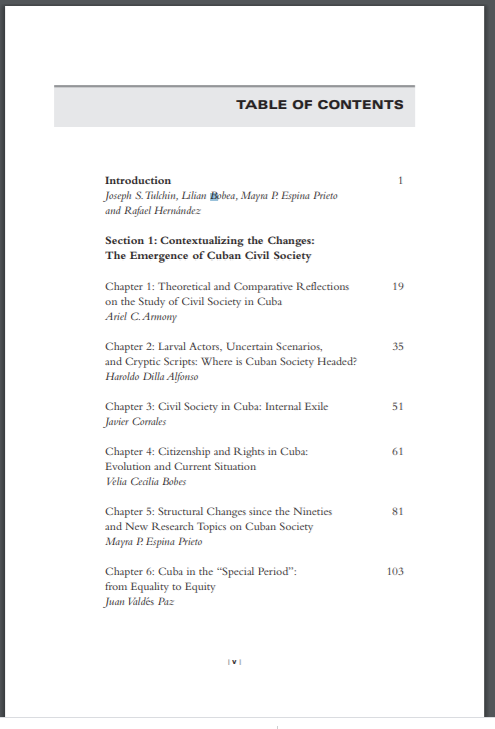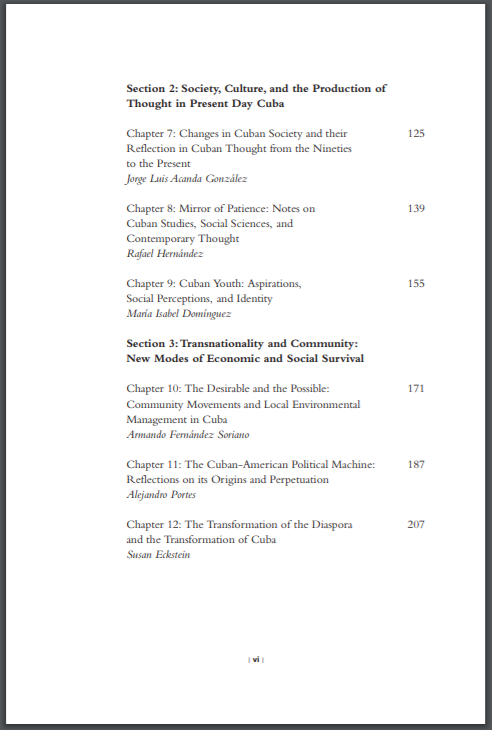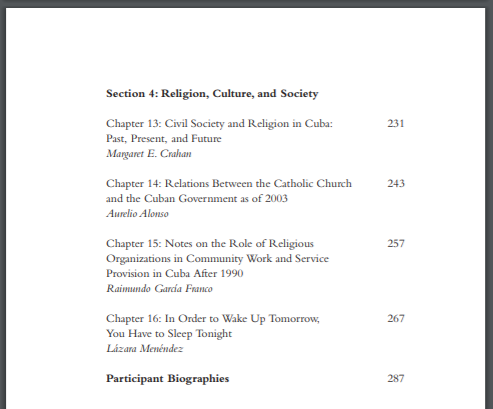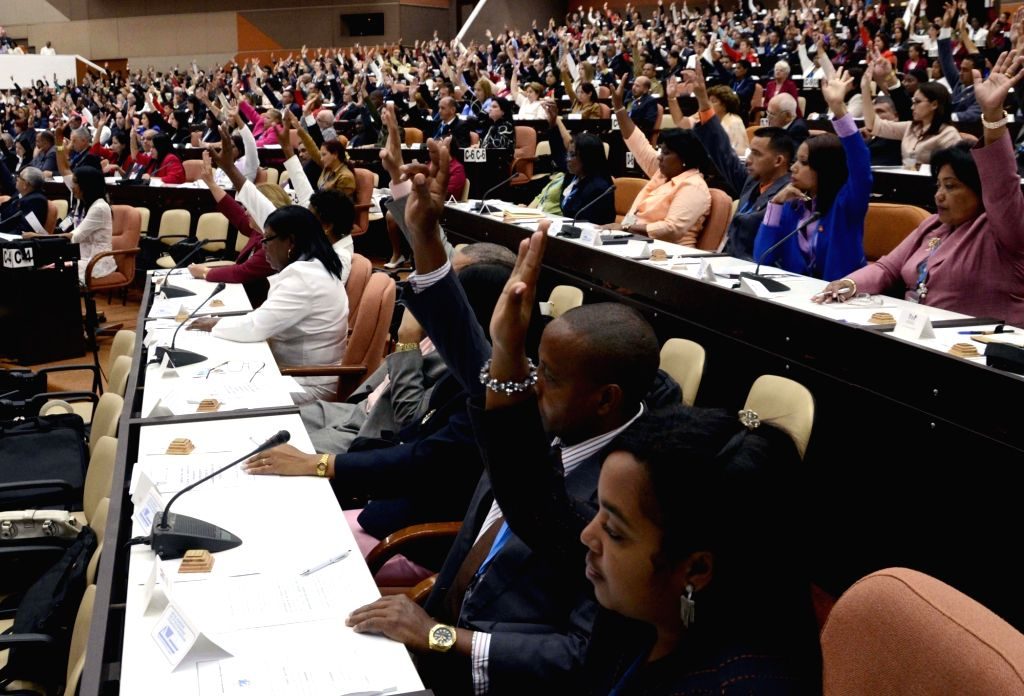Wilson Center Reports on the Americas No. 15: Changes in Cuban Society since the Nineties
By Joseph Tulchin, Lilian Bobea, Elizabeth Bryan and 2 more
Complete Report: Changes in Cuban Society since the Nineties
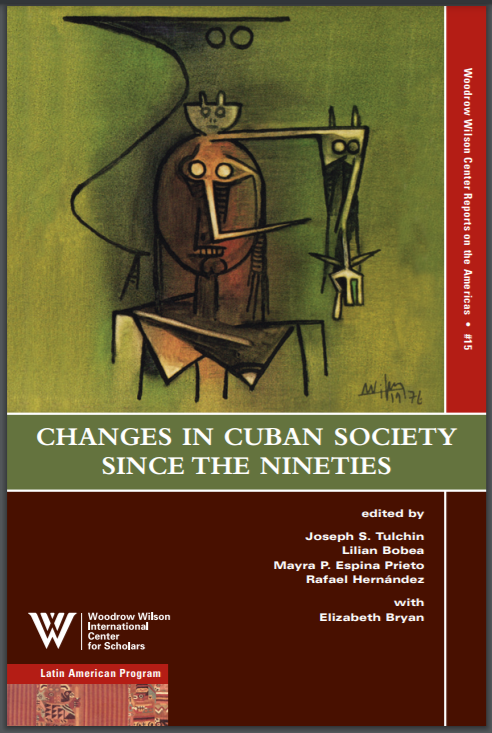
This book aims to provide academics, policymakers, NGOs and the media in Cuba, Latin America and North America, with a better understanding of the changes in Cuban civil society since the collapse of the Soviet Union and their implications in the areas of research, academic and literary production, and public policy. It presents and assesses critically the changes that have taken place in Cuban society, economy, politics, and culture as Cuba emerges from the crisis of the 1990s. This volume also aspires to contribute in a meaningful way to the political debate in the United States and to the dialogue between the United States and Cuba. It brings together contrasting perspectives marked by occasionally opposing views from both within and outside the island. It is the result of a seminar held in the Dominican Republic in December 2003 under the auspices of the Latin American Program of the Woodrow Wilson International Center for Scholars and the Facultad Latinoamericano de Ciencias Sociales, with the generous contribution of The Ford Foundation.
